The 2009 International Achievement Summit was held in the City of Cape Town, South Africa and the magical Singita Sabi Sands Game Reserve from July 3 to July 8.
In its first gathering on the continent of Africa, the American Academy of Achievement held its 2009 International Achievement Summit in the City of Cape Town, South Africa, and in the rugged natural paradise of the Singita Sabi Sand Game Reserve. From July 3 to July 8, 2009, a group of the world’s most outstanding graduate students joined an assembly of Academy scholars, achievers and honorees to exchange ideas, learn from each other and from the people of South Africa, and understand firsthand the teachings of South Africa’s stirring history.
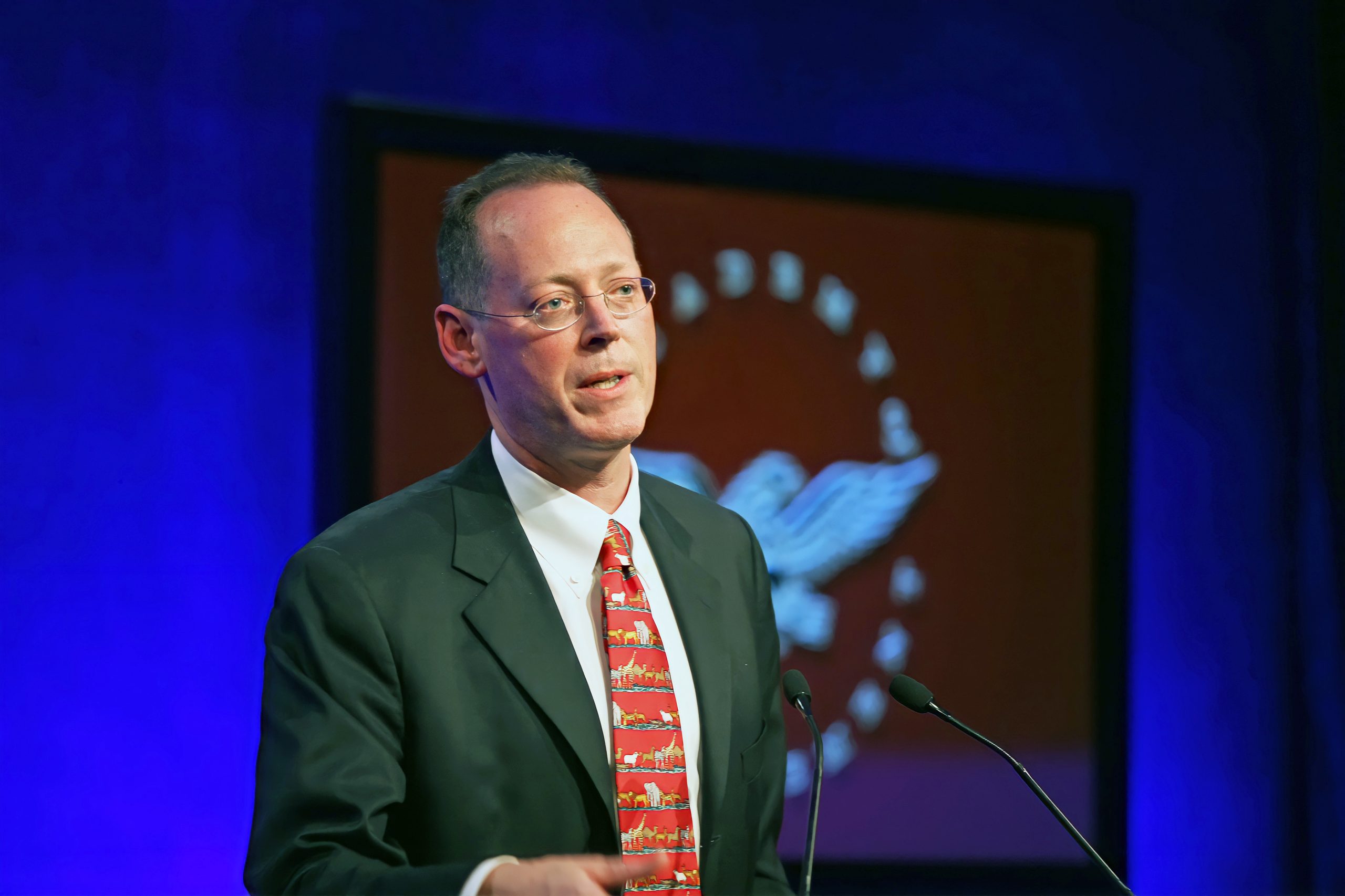
The Summit Host was the Archbishop Emeritus of Cape Town, Desmond Tutu. A recipient of the Nobel Prize for Peace, Archbishop Tutu was joined by two of Africa’s Nobel Laureates for Literature, Nadine Gordimer and Wole Soyinka, as well a recipient of the Nobel Prize in Economics, Dr. Joseph Stiglitz.
Another of the world’s favorite authors, Alexander McCall Smith, joined the Academy in South Africa. The arts were further represented by stage and screen actor Jeremy Irons, a recipient of the Oscar, Emmy and Tony Awards. Grammy-winning musical artists in attendance included concert violinist Joshua Bell, Christian music pioneer Amy Grant and country music legend Vince Gill.

In addition to Archbishop Tutu, the Summit was attended by other heroes of South Africa’s victorious struggle against the apartheid regime of racial discrimination: labor leader Cyril Ramaphosa; the Honorable Albie Sachs, Justice of South Africa’s Constitutional Court; the Honorable Navanethem Pillay, the United Nations High Commissioner for Human Rights; as well as former political prisoner and current South African cabinet minister Barbara Hogan. Prominent public figures from the United States included the Executive Director of the American Civil Liberties Union, Anthony Romero, and the Mayor of Los Angeles, Antonio Villaraigosa.
Legendary explorers of Africa among the attendees included the paleoanthropologist and conservationist Richard Leakey, documentary filmmakers Dereck and Beverly Joubert, and legendary primate researcher Dame Jane Goodall. Outstanding men of medicine attending the Summit included renowned neurosurgeon Dr. Benjamin Carson; the Chief of Surgery of the National Cancer Institute, Dr. Steven Rosenberg; and the founder of the international medical charity Partners in Health, Dr. Paul Farmer.
Distinguished journalists in attendance included ABC News veteran Sam Donaldson and MSNBC Hardball host Chris Matthews. Representatives of international business included the founder of South Africa’s two largest hotel chains, Sol Kerzner.

The Host Chairman of the 2009 International Achievement Summit was Catherine B. Reynolds, Chairman and CEO of The Catherine B. Reynolds Foundation. This year’s Summit was made possible by a generous grant from The Catherine B. Reynolds Foundation.
Early arrivals on Friday, July 3, enjoyed a breathtaking tour of Cape Town before convening at the One&Only hotel for the first seminar of the Summit. After a welcome from the Summit’s Host Chairman, Catherine B. Reynolds, Academy members and student delegates heard from one of South Africa’s greatest success stories, the founder and chairman of One&Only Resorts, Sol Kerzner.

Two distinguished physicians from the United States took the stage following Mr. Kerzner’s remarks. The Chief of Surgery of the National Cancer Institute, Dr. Steven Rosenberg, introduced the founder of Partners in Health (PIH), Dr. Paul Farmer. Dr. Farmer gave a thorough and inspiring presentation of the work of PIH in creating sustainable medical facilities in the poorest communities on earth.
The Saturday morning program opened with an address by one of the heroes of South Africa’s struggle against apartheid. Once a political prisoner himself, the Honorable Albie Sachs is now a Justice of South Africa’s Constitutional Court. A principal architect of South Africa’s democratic constitution, Justice Sachs gave a moving account of his lifelong struggle for the freedom of his country.
Justice Sachs was followed by one of the great literary voices of South Africa, the Nobel Prize-winning novelist Nadine Gordimer. The last speaker of the morning was the Honorable Navanethem Pillay. As a young attorney, she had to make her way as a woman of East Indian ancestry in a racially segregated society. After a distinguished career as a civil rights advocate and jurist in South Africa, she now serves as the UN’s High Commissioner for Human Rights.

Following the morning session, Summit participants traveled to the Western Cape. Here, the group confronted the sobering reality of township life — cramped makeshift dwellings packed from horizon to horizon, a tragic legacy of the long years of neglect and oppression. In the midst of this struggling community, Academy members and student delegates found an oasis of hope — the Baphumelele Children’s Home, an orphanage that offers a clean, safe refuge for the abandoned children of the district, many of them infected from birth with HIV. Inside the gates of the Children’s Home, the children, most of them barely toddlers, sang a heartfelt welcome to their guests.

The Academy heard first from Rosie Mashale, the resolute founder of the Baphumelele School and Children’s Home. Cape historian Garth Angus spoke on the history of the orphanage and surrounding community, followed by Dr. Mitch Besser, Medical Director of the service organization Mothers2Mothers. The most emotional moment of the session came when Viwe Mgudlwa described her own experience as a young mother, ostracized by her family and neighbors when she was diagnosed with HIV. Today, she has a healthy child, thanks to the work of Mothers2Mothers. Now an active member of the organization, she described the group’s work, teaching mothers in disadvantaged communities to create their own aid networks.

While at Baphumelele, the Academy members and student delegates heard from South African cabinet minister Barbara Hogan. The first South African woman to be convicted of treason, for her principled resistance to the apartheid regime, she has since served as Minister of Health, effecting a complete turnaround in the country’s AIDS policy to prevent the further transmission of the virus from mother to child. Before their departure, Academy members presented the children with books, toys, stuffed animals and art supplies.

Only halfway through their first full day in South Africa, the Academy’s guests experienced yet another side of this country’s remarkable diversity, traveling to the beautiful countryside for a lunch seminar. Here they heard an inspiring speaker from the United States, Dr. Benjamin Carson, who overcame youthful poverty to become the world’s most distinguished pediatric neurosurgeon. He was followed by the first African to receive the Nobel Prize for Literature, the Nigerian poet and playwright Wole Soyinka.

Returning to Cape Town, the Summit participants gathered in historic St. George’s Cathedral, spiritual home of the struggle for justice and democracy in South Africa. Entering the awe-inspiring interior of the cathedral by candlelight, the group was greeted by the best of South Africa’s celebrated children’s choirs: the internationally renowned Tygerberg children’s choir, the Kenmere Primary School Choir, the Kensington Chorale, the South African Youth Choir and the elite Voices of Angels group. The combined choruses — nearly 300 voices in all — gave a spine-tingling demonstration of South Africa’s distinctive choral tradition, singing songs of praise from South Africa and the United States.

More musical inspiration followed with the best-selling Christian music artist, Amy Grant, singing “El Shaddai,” accompanied by her husband, Vince Gill. Classical violinist Joshua Bell performed as a soloist, playing the transcendent “Meditation” from Massenet’s Thaïs, and accompanying South Africa’s most promising young opera singer, Golda Schultz, in Schubert’s “Ave Maria.”
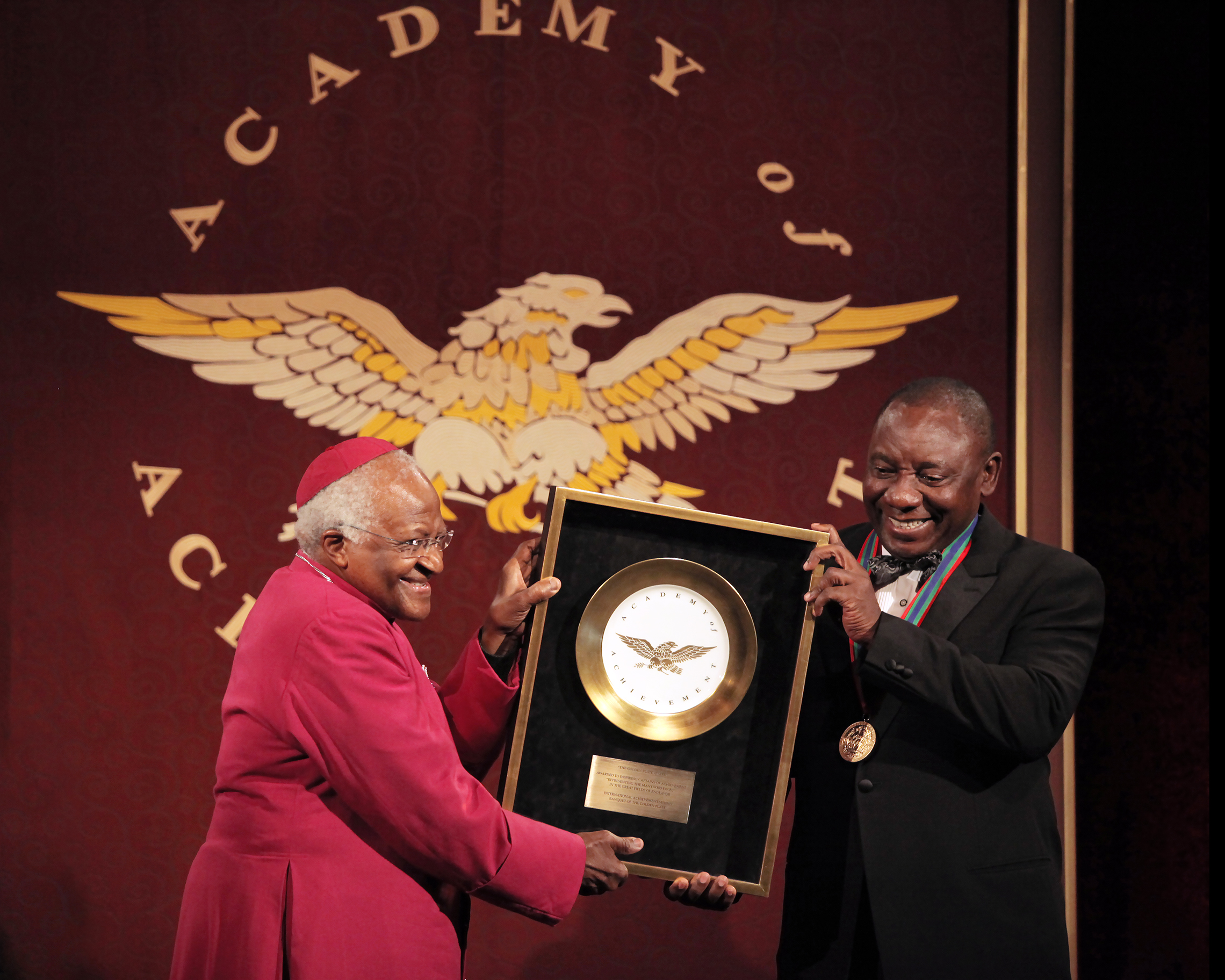
Following these exhilarating performances, the Academy heard a stirring address from the former dean of St. George’s Cathedral, the Archbishop Emeritus of Cape Town, Desmond Tutu. From the same pulpit where he courageously led the struggle for justice in South Africa, Tutu asked the student delegates to tap the power of their own imaginations. “Dream! Dream! Dream!” he exhorted them, urging them to make the most of their talents to create a better world. Concluding a thrilling evening, Archbishop Tutu presented the Gold Medal of the Academy of Achievement to each member of the Class of 2009.

That evening, the group returned to the One&Only for the black-tie Banquet of the Golden Plate. Award-winning actor Jeremy Irons read individual citations lauding the Academy’s new honorees, who were presented with the Golden Plate by Desmond Tutu. The long day closed with a performance by South Africa’s premier popular singer, “the Princess of Africa,” Yvonne Chaka Chaka, and her band. The pulsating rhythms of the band, along with Yvonne Chaka Chaka’s improvised musical tributes to the Academy members, had student delegates and Academy members dancing for the rest of the evening.

Sunday morning, the Summit participants traveled to the Singita Sabi Sand Game Reserve, deep in the interior. Here they stayed in beautiful rustic lodges, with flocks of wild monkeys playing in the trees surrounding the open “boma” dining areas. After traditional high tea in this exotic setting, guests took off in a fleet of Range Rovers for a game drive, bouncing across open country to see the brilliant fauna of Africa — giraffes, lions, rhinos, leopards and elephants — in their native habitat.
Returning to the Boulders Lodge for a dinner discussion and seminar, the assembly watched an astonishing video presentation by Dereck and Beverly Joubert, a husband-wife team of filmmakers who have spent their lives photographing the world’s most dangerous animals at close range in the wild. The Jouberts were followed by a hero of our times, the conservationist, paleoanthropologist and political activist Richard Leakey. When time for questions ran out, Leakey invited the students and guests to join him for an impromptu morning session.

Early Monday morning, Leakey and the Jouberts were joined by Sam Donaldson, Chris Matthews, Joshua Bell, author Alexander McCall Smith and the Academy’s student delegates for a freewheeling discussion of issues ranging from the challenges of working with wild animals to the philosophical questions of reconciling scientific knowledge and religious faith. The informal conversation continued for over two hours, in the free-flowing cross-disciplinary exchange that is a hallmark of the Achievement Summit.

The day’s formal program began with a friendly discussion of the opportunities for service young people can find in the challenges facing the modern city, with legendary journalist Sam Donaldson and Los Angeles Mayor Antonio Villaraigosa. The morning heated up with an intense discussion between Hardball host Chris Matthews and the Executive Director of the American Civil Liberties Union, Anthony Romero. As on his popular political discussion program, Matthews pressed his questions vigorously, probing every possible contradiction presented by the defense of civil liberties in a nation divided over so many issues.

After lunch, one of the world’s most popular authors, Alexander McCall Smith, charmed the audience, just as he has charmed readers around the world. No stranger to Africa, McCall Smith was born and raised in what is now Zimbabwe. He has set his bestselling tales of The Number 1 Ladies Detective Agency in neighboring Botswana. McCall Smith exercised his talents as a raconteur throughout the Summit, reading aloud first drafts of his latest stories to gales of appreciative laughter.

That afternoon, the legendary primatologist Dame Jane Goodall gave an engrossing account of her lifelong study of chimpanzees in the wild. Like Richard Leakey, she spontaneously offered to continue the conversation with the students the following morning. After dinner, the Academy heard a performance from one of its gifted student delegates, violinist Maya Shankar. She was joined in a duet by none other than Joshua Bell, who then played an ingenious set of variations on “Yankee Doodle.” The evening closed with a stirring performance by the Mkhuhlu Shangaan dance troupe, performing the traditional dances of the Shangaan people.

Tuesday morning, Jeremy Irons conducted a spontaneous question-and-answer session with the students, before Jane Goodall returned to discuss her work more deeply with the student delegates. Later that morning, the group traveled by country roads from the game reserve to the nearby town of Justicia, a rural community whose self-sufficient inhabitants live by raising cattle. Riding over rugged country in open Range Rovers, the Academy members arrived at Justicia’s Ntshuxekani Preschool, to be greeted by the school’s children, lining the entrance in their gold and green uniforms, singing and waving palm fronds to greet their visitors.

After a warm greeting from the school’s Headmistress, Miss Vida Ngonyama, the students offered a charming musical performance. They were entertained in turn by the incomparable team of Amy Grant and Vince Gill. “They’ve sung for us, now let’s put a song together and sing for them,” Gill said, and led the entire crowd in an improvised song about the Justicia School. The Academy presented the children with a variety of musical equipment — an electric keyboard, a piano bench, a guitar, music stands, and reams of music — to enable these talented children to continue their musical efforts. The Academy also made a welcome donation of 40 small mattresses for the children’s rest time.

A special guest of the Academy, television journalist Kathleen Matthews, conducted a wide-ranging discussion with some of the Academy’s student delegates. Distinguished social entrepreneurs in their own right, many of them are Catherine B. Reynolds Foundation Fellows from New York University and Harvard University. They discussed their own social entrepreneurship projects and described how they were inspired by the stimulating experiences of the week.
Returning to the Boulders Lodge for lunch, Nobel Prize-winning economist Dr. Joseph Stiglitz led an in-depth discussion of the international economic crisis, its origins, and ideas for potential remedies. However serious the subject matter, the discussion never became overwhelming, due in part to the ever-present monkeys capering about the open-air lodge.
After a fascinating game drive, the group reconvened at the Singita Ebony Lodge for a final informal dinner discussion. Jeremy Irons read the poem “Ithaka” by the 20th century Greek poet Constantin Cavafy. Implicitly comparing the voyage of Odysseus to the life journey of the student delegates, he lingered on the lines “Hope your road is a long one, full of adventure, full of discovery.”

Irons also showed a less-known musical side of his talent, picking up a guitar to play a humorous duet with Vince Gill. Amy Grant and Vince Gill took turns singing solo numbers, giving the Academy a preview of songs from their upcoming albums. In a completely unexpected moment, Vince Gill invited his daughter, Jenny Gill, to the stage, where she gave a memorable performance of his song, “Whenever You Come Around.” At the end of the evening, Jeremy Irons urged the student delegates to hook up their iPods to the Academy sound system, and as the students took turns playing DJ, the entire group enjoyed a spontaneous dance party for the rest of the evening.

The following morning, Academy members traveled from Singita to Johannesburg and visited Soweto township, cradle of South Africa’s freedom struggle, where they toured the Hector Pieterson Museum, commemorating the Soweto uprising, a turning point in the struggle against apartheid. In a few intellectually rigorous and eventful days, the Academy’s guests had experienced, learned from, and were inspired by the stunning diversity of South Africa, from crowded cities to pristine wilderness. In firsthand contact with the country’s people — from cabinet ministers to hundreds of schoolchildren — the student delegates gained invaluable insight into the unfolding history of this dynamic country. In their daily exchanges with the distinguished members of the Academy, they also learned the essential qualities of achievement — lessons that men and women of all nations can apply to combat disease and poverty, and allow the children of the world to achieve their full potential.


The heartfelt enthusiasm and genuine, unaffected gratitude of the student delegates are among the most rewarding aspects of the International Achievement Summit. We invite you to share in their close encounters with Academy members and fellow delegates, as described in their own words.
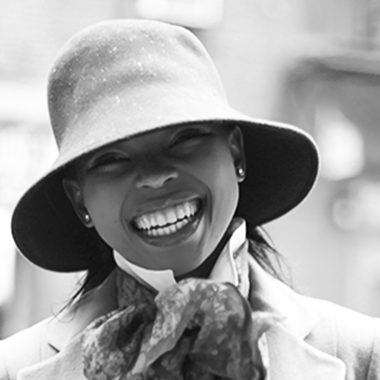
Magogodi Makhene
Catherine B. Reynolds Foundation Fellow, New York University
Dear Mrs. Reynolds,
I am writing to thank you for a most memorable experience — filled with the effervescence of laughter, the palpable excitement of human possibility (even in the face of the most daunting life challenges) and most importantly, the promise of new friendships and connections. Being surrounded in the country of my birth with celebrated luminaries I have often counted among my heroes proved an exceptional time filled with indelible moments I will retell for years to come.
I really appreciated the light, playful spirit of some of the most accomplished minds of our time. You can imagine my delight sitting for lunch next to Alexander McCall Smith (whose books I’ve devoured for years) to find a most amusing and entertaining sense of humor layered beneath a highly engaging and keen mind. As an aspiring writer, I loved hearing Mr. Smith describe his writing process and really prized the passion with which he spoke about not only his characters and how plots unfold, but also how his life has been interwoven in the time and place of his fiction. And how could I forget how he had us all in stitches during his lecture, reading and discussion? I could not resist telling his wife just how much of a “cool cat” he is — I even agreed to have a petition signed and seconded by all the student delegates affirming his coolness to present their daughters. This ability and willingness to share laughter and ready smiles easily is something I remember vividly throughout the Summit, even when people seemingly had little to smile about.
How could I forget the bubbly and sometimes shy smiles that greeted us at Ntshuxekani Preschool? In their pristine school uniforms, eager faces and bold poems about lions and elephants, I saw a piece of my childhood self and remembered my early beginnings in Soweto. I was very moved by how much work remains to be done in my country and beyond. And yet, even in the face of so much need, I was humbled by the passion, dignity and liveliness of Ntshuxekani, Justicia and Khayelitsha. I was really proud to be part of a Summit that extended so much generosity to every site we visited — I was especially proud to be part of such a critical group of thinkers who also recognized how much we all have to learn from even those with so much need.
Professor Richard Leakey spoke most eloquently about this, urging us all to be mindful of how much Africa has to offer humanity, beginning with the simple acts of kindness we all experienced at the hands of Africans throughout our stay.
Another extraordinary African, Justice Albie Sachs, seamlessly combined good humor and wit with an inspiring mind. I still have goosebumps recounting this hero’s story, of how he fought against an apartheid regime with the hope that one day, a free generation would own South Africa.
How could I not be humbled when opportunities I enjoy are the fruit of bloody labor from men and women like Justice Albie Sachs, Archbishop Desmond Tutu, Cyril Ramaphosa and the Honorable Navanethem Pillay?I cannot recount in words how thankful I am to you for connecting me in such a profound manner to the architects of my home country’s democracy. And how can I paint in words the purple swoosh of cloth and vitality that swept the dance floor as the Archbishop taught me a thing or two about downright good dancing?
The Summit was a spectacular testament to the irrepressible nature of the human spirit.
Every speaker spoke in some fashion or other about the beauty of humanity at its best. For me, so much of this beauty is wrapped up in who we are to each other — what South Africans, and most notably Archbishop Tutu — refer to as ubuntu. That we are nothing without each other, that my humanity is inextricably linked to yours, that I am because we are. The most cherished gift you’ve given me through the Summit are the new friendships I hope to cultivate for years to come. I met some of the most impressive, fun and creative young achievers at the Summit, some of whom I am now privileged to call friends.
In thanking you for this amazing opportunity, I hope to use what I have learned and seen as impetus to make me quicker to smile to strangers, a kinder friend and a human citizen more driven by the principles of ubuntu. Thank you for your generosity and kindness.
Warm regards,
Magogodi Makhene
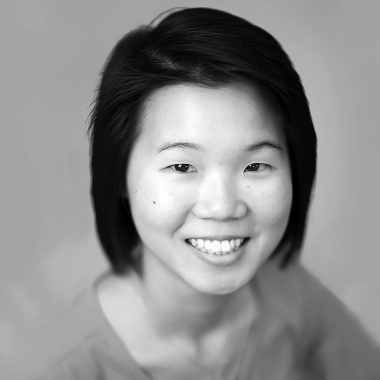
Hannah H. Chang
Presidential Scholar, Harvard Medical School and Massachusetts Institute of Technology
Dear Mrs. Reynolds,
It has been more than two weeks since my return from the 2009 International Achievement Summit in South Africa. I must admit, I am still living in the afterglow of the whole experience. It would be safe to say that the Summit was by far the most inspiring and spiritual experience I have ever had. It could not have been possible without your generous support. I cannot imagine that I would be able to express my full gratitude in this letter; I hope to repay some of it through my future actions. I would, however, like to share some of the realizations and experiences I had during the eventful week, so you can see what a wonderful gift you have given me.
The most important lesson I took away from the whole week is that true achievement comes with humility and gentleness. In the highly competitive academic environment of today, it is sometimes easy to forget that real strength comes from within, and that it does not require an ostentatious display of accomplishments. From the Academy inductees to the student delegates, I witnessed the conviction and courage that comes from passion and dedication to one’s cause. But at the same time, it was warmth, kindness, and empathy that radiated, whether it be environmentalist, physician, religious leader, politician, political activist, journalist, economist, musician, or actor. This was truly inspiring.
The week was also a celebration of human resilience and diversity. I think it is easy to witness poverty and hardships and feel sympathy; what is more challenging is to simultaneously appreciate the unique strengths that resulted from difficult environments. Our trips to the orphanage, township, and schools were poignant for me not because the conditions were shocking to me (in truth, I have seen similar things in Taiwan and China), but that it reminded of the internal conflicts that I went through when I immigrated to the United States. How much of your heritage do you take with you? What do you leave behind? Have you betrayed those who nudged you forward if you have succeeded?
Anthony Romero’s urge to “utilize your background” struck a deep chord within me and gave me hope and courage for the future.
As the week went on, I also felt increasingly at peace about my recent decision to pursue a career in clinical ophthalmology upon completion of my M.D.-Ph.D. degree. I was so glad to at last grasp the purpose of my own life! Meeting so many people with such extraordinary talent and accomplishments has helped me accept my own weaknesses. More importantly, the experience anchored me, because at last, I have come to accept that my strengths too can contribute to the human cause. I might never be able to build schools in Botswana, nor start businesses to help the poor in Zimbabwe. But what I can do is to become a good clinician, one with both the skills to cure and the curiosity to discover. And who knows? Maybe some day I could bring my skills back to Africa.
The African landscape — it was stunning in its grandeur and beauty. There were many evenings, with the setting sun a rosy glow near the horizon, the air cooling, the smell of Africa a tangy sweetness, and the moon rising in the distance that I felt a profound sense of peacefulness in my heart. I am not a religious person and do not have a name for the one above, but even I knew the undeniable existence of something greater than men at those moments. Wrapped in those scratchy blankets and surrounded by the possibilities of the wilderness around me, I felt deeply grateful that I share this planet with all those wonderful creatures. Dr. Jane Goodall was right. It was not about saving animals; it was about rescuing humanity.
In the days since I have been back in Boston, I have tried to savor each and every memory of the whole experience. There are many tools I have: photographs, videos, journal entries, and blogs. But I think the most important documentation of all is the one that I hope to keep inside my heart. And with that, I hope to continue onward with life, having a clearer goal and more steady steps towards a future where the act of giving back becomes a daily ritual. I hope that cumulatively, over years and decades, I can begin to repay the kindness that I have received in my life. I thank you from the very bottom of my heart for giving me the opportunity to be a student delegate at the 2009 International Achievement Summit in South Africa. It was the gift of a lifetime. I wish you and your family the very best. I hope our paths cross again soon.
With the deepest gratitude and humility,
Hannah H. Chang, Ph.D.
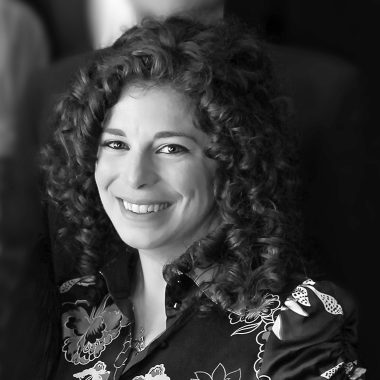
Keren G. Raz
Catherine B. Reynolds Foundation Fellow, New York University School of Law
Dear Mr. and Mrs. Reynolds,
Thank you a million times over for your invitation to attend the International Achievement Summit. It was an extraordinary adventure and life-changing experience. I hope the following letter captures at least a small bit of my appreciation.
To articulate the impact the trip had on me, I am going to run with Kathleen Matthews’s brilliant idea of identifying the first line of our story for the trip and our image of the trip. As for the first line, it would be the names of everyone who attended, connected without any spaces or punctuation. Example: WayneCatherineKerenBenJosephJaneLuMagogodi… For me, this beginning to my story symbolizes the highlight of the trip — the people — and the sense of equality and connectivity that you fostered. I left South Africa feeling complete happiness and a newfound confidence in myself, my dreams, and my ideas. More than that, I feel like I have a new amazing family to support me. All of us graduate students grew very close, and we are already talking about a reunion. That alone would have made the trip priceless, but of course there was so much more.
My image of the trip, without a doubt, is a still shot of Alex McCall Smith laughing so much at the end of his speech that he could hardly tell us what he found so hysterical about his latest piece of writing. On our last night, Mrs. Reynolds, you told the students that you hope we find as much joy in our lives as Academy members have found. The image of Mr. Smith illustrates what your message means to me, a message that I have taken to heart. I hope you can walk into my law office someday soon and find me smiling involuntarily, out of pure joy. The list of other takeaways from the trip go on and on, and there are countless memories that make me smile or laugh every day. I will never forget looking out of my lodge at Singita and staring right into the powerful gaze of a water buffalo.
On the plane ride home I had the wonderful opportunity to hear more of Sam Donaldson’s stories. And of course, the chance to sit with you two the last night of the Summit was a perfect capstone to the extraordinary trip and another highlight in my experience as a Reynolds Fellow. Mrs. Reynolds, you are one of the first female role models in my life who shares a vision of a new type of legal entity for hybrid organizations. That means so much to me. I am more eager than ever now to help make the new legal entity happen for those organizations that need it. I have no doubt that as time passes and the memories continue to persist, I will discover new ways the trip has changed me.
One final note I wanted to share with you. I learned today that I am in the top 25 percent of my law school class.
All the best,
Keren G. Raz
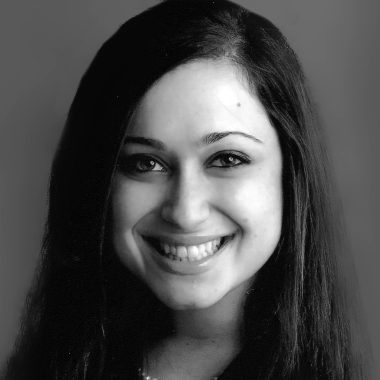
Elina Tetelbaum
Soros Fellow, Yale Law School
Dear Mrs. Reynolds,
I cannot even begin to convey the depth of my gratitude to you for what is the single most incredible experience of my life. In his remarks, Alexander McCall Smith described best the challenge of expressing thanks when he said that of all human attributes, authors struggle most with describing kindness. He explained that it is far easier for authors to depict the failings of humanity than their goodness. In light of that, Alexander McCall Smith might himself find describing my experience challenging, as I encountered nothing other than the best that humanity has to offer throughout my entire week at the Summit. I ask your patience as I struggle to find the words to adequately give justice to your kindness, and to the kindness that permeated every encounter I had in South Africa.
I am grateful for so much. I am grateful to have met an inspiring set of graduate students whose humility in light of their global contributions is astounding. I am grateful to have gleaned critical life lessons from individuals who have committed themselves to selfless pursuits in the most needy communities. I am grateful to have seen animals whose survival is endangered, whose natural habitats are increasingly difficult to protect. I am grateful that not a single minute went by without someone sharing an incredible insight with others who, but a few days prior, had been complete strangers to them. I am grateful that the conference felt like it was running itself, even though the intricacies behind planning such a Summit would likely elude even the civil engineer in attendance.
It is a rare opportunity for individuals committed to pursuing one particular field to encounter remarkable individuals in other disciplines. I felt this most strongly as soon as I stepped on the plane to Johannesburg and met Hannah, an M.D.-Ph.D. from Harvard. It had been a long time since I sat next to a stranger for over 15 hours, and I braced myself for what could easily have been an awkward silence. I could not have been more wrong. Hannah and I discussed more in the hours we spent together on the plane than I recall discussing in several months of law school. We did not just talk about law or medicine; we discussed life, its purpose, its limitations, and what our respective disciplines could do to promote it.
We discussed human resilience, human compassion, human drive, and human shortcomings. I came to see how legal analysis ran the risk of superficiality when it failed to concern itself with the types of questions medicine and science tackle on a regular basis. More importantly, I was reminded once again that two people placed together by random chance through the serendipity of seat assignments can move one another in powerful and unpredictable ways. Hannah and I elected to sit together on the plane ride home, adding another 15-hour conversation to our friendship. Not surprisingly, we had even more to discuss after the incredible events of the Academy Summit.
If my Academy of Achievement Summit experiences were limited only to the plane rides, I would have considered myself lucky. But of course the time spent on the ground was invaluable to me as well. No one ceased to amaze me throughout the trip — not even my fellow Yale Law students who I had presumed to know quite well. The memories that we shared throughout the days in Cape Town and Johannesburg are unlike anything we had ever experienced, and it comes as no surprise that we all felt closer after our time together. The openness with which everyone carried himself or herself was a welcome break from the guarded artifice of too many interpersonal encounters. It is a gift to have come away from the Summit not only with new friends, but with an understanding of old friends that I might never have obtained otherwise.
Certainly the joyous irony of being on a safari with the voice of Scar from The Lion King is not lost on me. Nor is watching Chris Matthews have to answer some Hardball questions of his own. The sight of Archbishop Desmond Tutu dancing with greater vivacity than most of the attendees in their mid-20s was simply astounding. As was having our Safari guides request, of all songs, a Bryan Adams ballad for our safari group to sing as we looked around for lions and elephants. My heart could not help but melt when I showed the elementary school students how to take pictures of one another on my digital camera.
But the moment that most touched me, the moment closest to my own heart, was when Albie Sachs, legal scholar and freedom fighter extraordinaire, described the need for judicial humor.
He read the most remarkable passage from a case he decided, which I have since forwarded to the judge that I will be clerking for after my graduation from law school. He read, “Does the law have a sense of humor? The Constitution cannot oblige the dour to laugh. It can, however, prevent the cheerless from snuffing out the laughter of the blithe spirits among us. A society that takes itself too seriously risks bottling up its tensions and treating every example of irreverence as a threat to its existence. Humor is one of the great solvents of democracy. It enables a multitude of discontents to be expressed in a myriad of spontaneous ways. It is an elixir of Constitutional health.”
Despite the sad themes that were often at the forefront of many of our panels — be they the extinction of species, the failing global economy, the bigotry plaguing South Africa’s history, or the scourge of HIV — humor was an ever present undercurrent to the discussions. Seeing those who have emerged from tremendous suffering revel in the joys of life is as humbling as it is inspiring. As I contemplated the moments during the inspiring week that were most formative, my mind settled on two separate conversations I had with Sam Donaldson. I had the joy of listening to him tell incredibly vivid stories about conversations he’d had with Presidents several decades ago. I felt like I was living history through his stories. A particularly striking moment was when Sam Donaldson asked Joshua Bell a few questions about how he came to play the violin. Joshua Bell recounted an endearing vignette about how he used to pull rubber bands over objects and pluck at them. We all laughed at the thought of this virtuoso discovering his talent through a handful of rubber bands. The next evening I was sitting with Sam Donaldson yet again and witnessed him recount Joshua Bell’s story with the ease of a master storyteller. There I was, watching a master reporter transform Joshua’s anecdote into a pithy and moving description of what contributes to master talent. What I realized right then is that this was his gift, taking casual conversations and transforming them into anecdotes that he could share with his audience for decades to come. I became aware that every conversation I had throughout my week with the Academy would one day be the basis of stories I could one day tell. These moments will richly populate my memory and — were I to live to be Sam Donaldson’s age — be the history that future generations will seek to learn about and feel nostalgic about.
When I returned from South Africa, I had dinner with a partner at the law firm I am working for, who had left South Africa early in his career. He and his wife are still deeply connected to the country and were fascinated by the stories of their national icons that I could share with them. Sharing the trip with them allowed me to relive again the wonders of what I encountered in my few days in South Africa. I am mindful that the reliving will take place as long as I am alive, as some critical memory is brought to mind at the various junctures of my life. This conference is the archetypal gift that keeps on giving, and like a good book that reveals news insights with every re-reading, the Summit’s lessons are similarly able to influence and re-influence me throughout the course of my life.
I am aware that nothing I have done in my life has rendered me worthy of such an experience. People far worthier than I may sadly never have such a remarkable life-changing opportunity at any point in their lives, Rosie coming immediately to mind. I know that I can never pay back the generosity that has been shown to me. All I can hope is to follow in the examples of the attendees that I have met, Academy members and student delegates alike. I can hope that the awareness I have gained, coupled with the connections I have made, will make me more effective at bringing about the good that this world most desperately needs. I am beside myself with gratitude and sincerely hope that I can one day bring the type of joy into other people’s lives that you have so selflessly brought into mine.
Sincerely,
Elina Tetelbaum
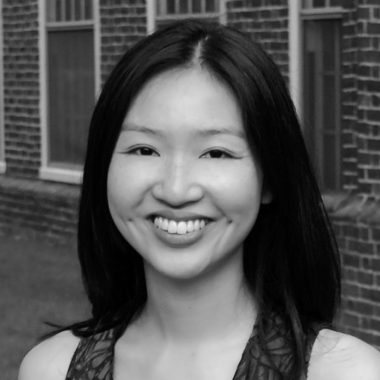
Alice Yang
Zuckerman Fellow and Soros Fellow, John F. Kennedy School of Government and Harvard Business School
Dear Mrs. Reynolds,
Words are inadequate to express my gratitude for the privilege of attending the 2009 International Achievement Summit in South Africa. I am still struggling to grasp — let alone explain to my family and friends — what the experience meant to me, and the impact it has had and will continue to have. I’ve long admired the Academy, based on friends’ reports of summits past and from working with Naomi Rosenberg for several years. But nothing could have prepared me for the transformative experience of attending this year’s Summit and for the afterwaves that now ripple through my daily life.
In writing this note, I wanted to share with you some personal highlights from the Summit. Singling out particular moments, however, does not capture the cumulative nature of the experience. The varied settings — from the urbane sophistication of the One&Only to the rugged splendor of Singita; from the pastoral elegance of Franschhoek to the gritty heartbreak of Khayelitsha; from the elegiac grandeur of St. George’s Cathedral to the dusty vibrancy of Justicia — were the perfect backdrops for communion, inspiration, reflection, and rejuvenation.
Moment built upon moment. Ideas swirled and sparked. Relationships formed and deepened.
The Summit was a constant feast for the eyes, ears, mind, and heart: Reuniting in Cape Town with my mentor, Dr. Paul Farmer. Cradling a trembling infant at the Baphumelele Children’s Home. Debating health care reform with the Zaxes, the Carsons, and the Donaldsons. Dancing with joyous abandon at Ebony Lodge. Marveling at the courage and steadfastness of Albie Sachs, Navi Pillay, Barbara Hogan, Desmond Tutu, and Cyril Ramaphosa. Involuntarily holding my breath as a leopard boldly circles our Range Rover. Reveling in Anthony Romero and Kathleen Matthews’s genuine camaraderie with the student delegates. I could go on and on… Embedded forever in my mind: Amy Grant and Vince Gill’s tender duets, Alexander McCall Smith’s uproarious readings, Joshua Bell’s violin pyrotechnics, Joseph Stiglitz’s sobering assessment of the global economic crisis. And, as a student of anthropology, I was particularly captivated by Jane Goodall and Richard Leakey’s discussions of their pioneering work.
Passion, bravery, dedication: these traits were abundantly evident in the speakers and the subject of many conversations among the student delegates. Every humbling encounter prompted me to reexamine my past and my future. How will I be worthy of all the extraordinary privileges afforded to me thus far? How can I compose my professional and personal lives to be as generous and constructive as those of the Academy honorees? These are selfish questions, to be sure, but also questions that compel a life of service.
I would also like to emphasize how impressed I was by the tremendous work of the Academy staff before and during the conference. Everything was so thoughtful and seamless and, notably, infused with humor and grace. I’m in Washington, D.C. through early August and will be meeting with Erin Daly to brainstorm ways to strengthen alumni connections and sustain the relationships that were established at the Summit. Philanthropy, student engagement, and convening people and ideas across disciplines are long-term professional interests of mine, and the Academy is a shining example of all three.
It is truly an honor to have been a part of the 2009 International Achievement Summit. I carry with me lasting inspiration from the words, dreams, and deeds of the Academy staff, the Council members, the honorees, and the other student delegates.
Thank you for sharing with us your vision, generosity, and profound commitment to the world. I hope our paths will cross again.
With warmest wishes and deepest gratitude,
Alice Yang
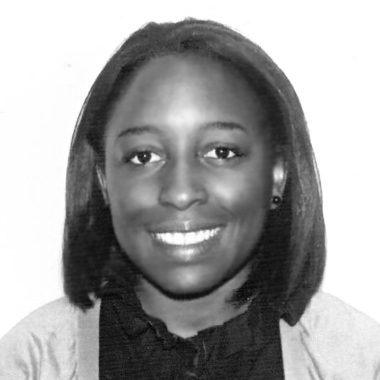
Aminta Ossom
Heyman Fellow, Harvard Law School
Dear Mrs. Reynolds,
I cannot thank you enough for your generosity in supporting the International Achievement Summit and the student delegates whose lives were changed by our experiences there! Although a full month has passed since our time in South Africa, I am still reflecting on the lessons and friendships I encountered during the trip. The week was literally a dream.
I think the greatest gift I received from the Summit was the opportunity to absorb wisdom from the Academy members and inductees. Many of their life stories had inspired me to pursue a career in legal advocacy in the first place. For example, I was particularly moved by my discussions with Justice Sachs. Because he is such a gifted communicator and teacher, he effortlessly passed down life-guiding knowledge even as he introduced himself over dinner. We had just met, and I already felt as if I were speaking to a mentor! I found his openness, his courage, and his advice refreshing. The stories he shared about creating a legal framework for an inclusive post-apartheid South Africa reminded me of the goals I can only hope to accomplish in my career as an advocate as well.
I also found myself particularly moved by the work of Dereck and Beverly Joubert. They presented a very powerful message for conservation through their films and photography, which helped me to look at the skill of advocacy from a more artistic perspective. It is a testament to their talent that the piece they shared left everyone in the room breathless and mesmerized.
It was remarkable that everyone at the Summit shared the same humility, love of life, and spirit of service despite the height of their achievements and the great wealth of their differences. I will never forget Amy Grant’s encouraging voice, Sam Donaldson’s curiosity, High Commissioner Pillay’s graciousness, Anthony Romero’s passion, and Alexander McCall Smith’s contagious joy.
These images will also stick in my mind: Jeremy Irons kneeling to feed the children of Baphumelele, a cluster of student delegates gathered around and straining to hear Raks and Dr. Farmer share their stories late into the night, Archbishop Tutu’s arms outstretched at the pulpit of St. George’s Cathedral, the sun spotlighting Dame Jane Goodall as she spoke early in the morning at Singita and nature awoke behind her, Rosie fighting tears as she thanked Minister Hogan for coming to visit…
I am also completely overwhelmed and flattered to have been included in such a class of student delegates, whose accomplishments and intellect far outpace their years of life. Hearing about the students’ own work (from their biographies and down the grapevine, because they were all too humble to brag on themselves!) has dared me to reach higher and dream bigger even in my own academic and personal pursuits. Meeting the other student delegates has assured me that our youth does not relegate us to inaction and complacency. Instead, our energy and creativity allow us to rise to the challenges of our generation.
On that note, I want to express how much I appreciated the student panel discussion on social entrepreneurship. I must say the concept of social entrepreneurship was a new one to me, so listening to the other student delegates describe their own entrepreneurial endeavors helped to paint a clear picture of the enterprise. Then and now, I reflect on their successes with a smile; I am lucky and proud to call them all friends.
I can only imagine the great commitment of time and resources that were dedicated to the Summit this year, and I want to say that they were well-directed. Each event — no matter how simple or grandiose — focused our attention back to the admirable qualities that serve as a foundation for true achievement: service, perseverance, and love. Each environment — from the wide-open landscape of Sabi Sand with its soul-searching sky to the clustered couches of the One & Only — set the perfect backdrop for intimate discussion, personal reflection, laughter, and motivation. I took notes at every speech because I could not believe the amount of wisdom that was being passed down so freely there. I logged my personal conversations and encounters in my journal each night because they were equally awe-inspiring. I will have these lessons and memories forever, and they are invaluable!
I thought I was a dreamer before I attended the International Achievement Summit, but my experiences there — and your support — have allowed me to dream even greater dreams for myself. I am incredibly grateful.
A million thanks,
Aminta J. Ossom
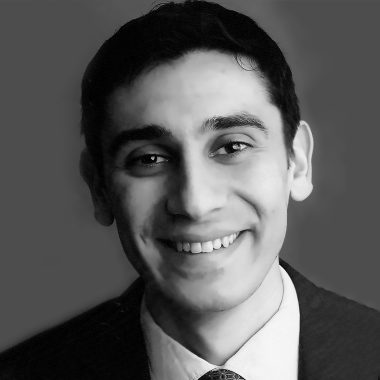
David Noah
Soros Fellow, Yale Law School
Dear Mrs. Reynolds,
I’m not sure exactly when I realized that there was no way I could ever thank you enough for the most incredible, and inspiring five days of my life. I think I had an inkling when Sam Donaldson and Jeremy Irons offered to share their vanilla ice cream with me, that first evening, after dinner. But, even after that entirely surreal vanilla ice cream, I couldn’t have begun to imagine how profoundly those five days would affect me.
Because I spend most of my waking life with children in the classroom and the schoolhouse, I tend to see every experience for its potential to educate. And the 2009 Summit was not just a rare education for the few of us students lucky enough to be invited; it was an education that simply does not exist anywhere else. Most of us scholarship kids have the occasional opportunity to hear great speakers, and we even sometimes get the odd chance to engage one of them intellectually for a few minutes. But to hear Wole Soyinka speak so frankly and passionately about African politics, and then to be able to ask him questions over coffee or disagree with him across the breakfast table… there is no amount of thanks that fully repays that privilege.
The truly amazing opportunity, and the real education, was not in hearing Dr. Leakey’s bleak vision of the future or Chris Mathews’s strident views on immigration policy, it was in the spirited conversation afterwards. Every talk, performance, and experience — the orphanage, the vineyard, the primary school — was profound, but even more profound was the intense, collective, intellectual scrutiny that followed. No experience passed unexamined, undiscussed, or without comment.
And that’s the problem. I can’t just thank you for inviting me or for giving me the chance to hear the keenest minds in the world engage with the problems of AIDS, global warming, overconsumption, and genocide. I can’t just thank you for the students you invited, though, after almost every exchange I found myself resolving to think harder, work harder, and do more for the world around me. And I can’t just thank you for the incredible beauty that greeted us every morning in both Cape Town and Singita, though I’ll never forget the two leopard cubs that scampered past me while I was walking to breakfast. Somehow the experience was more than the sum of its parts, and that’s where I get stuck.
Without some serious metaphysics, I don’t know how to thank you for the whole experience. What I can offer, though, is this: I have never had an experience, and I suspect I will never again have an experience, that so intensely chastens me to do something with my life. Albie Sachs and Dr. Farmer best express what I’m trying to convey. Each of them has sacrificed so much, but neither of them even hinted at the cost of their personal sacrifice. Instead, each of them spoke with direct, passionate, and uncomplicated urgency about the need to combat oppression or heal the sick.
Their personal stories were not really biographies, they were commandments: “You have so much, now go do something with it.”
This, I think, was the theme, the message, and the effect of the Summit. And I’m not sure there is any amount of thanks that can repay the chance to receive such a powerful and profound reminder, but… thank you.
Sincerely,
David Noah
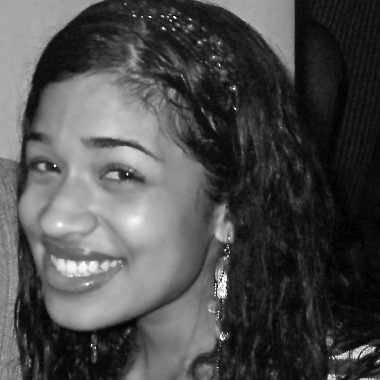
Maya Shankar
Rhodes Scholar, New College, Oxford University
Dear Mr. and Mrs. Reynolds,
My Academy of Achievement Experience: One of the most rewarding experiences of my entire life. I could never have predicted the magnitude of its impact on my personal and academic life. It is safe to say I have never attended an event in which I was simultaneously surrounded by such talent, motivation, brilliance, and energy… but also (and perhaps most importantly) warmth, humility, kindness and love. The attendees were so down-to-earth; approachable and eager to engage in conversations of all kinds. I learned many valuable life lessons and also derived so much joy from seeing my peers so engaged in social justice efforts. I came back with a huge set of friends, idols, role models… and of course, newly found energy and enthusiasm for my work!
Thank you also for re-introducing me to the world of classical music. I would never have gotten back into it had I not received the most amazing invitation to play with Joshua Bell. Since then, my musical life has really opened up. I’ve received invitations to solo with orchestras around the world (including conversations about soloing with the Cape Town Philharmonic with Vanessa September), and to perform on National Public Radio in October. I owe this all to you. My concert with Joshua was the most fulfilling, exhilarating and heartfelt performance I have ever given. I connected with my instrument in a completely different way after being at the conference for five days — greater inspiration, and critically an emotional aspect of being able to communicate with my new “Academy Family” through a medium that is so near to my heart. It was a joy to share my love for music with this group of individuals; I felt like I was having an intimate conversation with each of them. What a receptive audience!
My life has been changed so dramatically since the conference, and I feel lucky and blessed to have participated. I hope to see you both again soon. You are wonderful and generous people who are really changing the world.
Warmly yours,
Maya Shankar
